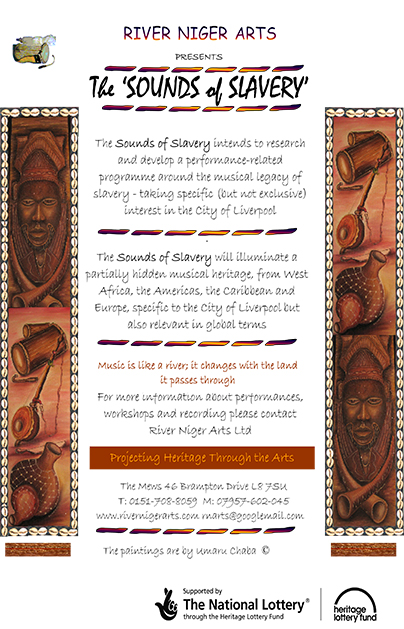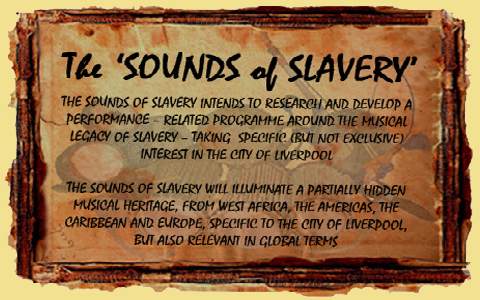Please view the database of songs from the Slavery period and discover some of the songs and narratives that helped shape popular music as we know it today. The database also contains songs with specific links to Liverpool. Between 1880 and 1807 75% of all European slave ships left from Liverpool, and Liverpool slave ships transported around 1.5 million Africans across the Atlantic. The Transatlantic slave trade changed the Western World and there is constant debate about the impact of its legacy on the arts, industry and history. An African proverb from the Ewe-mina tribe of Benin, Ghana and Togo
‘Until the lion has his own historian, history will always glorify the hunter’
 |
"We are almost a nation of dancers, musicians, and poets. Thus every great event, such as a triumphant return from battle, or other cause of public rejoicing, is celebrated in public dances which are accompanied with songs and music suited to the occasion." Olaudah Equiano (a former slave) from his book ‘The interesting narrative of the life of Olaudah Equiano or Gustavus Vassa the African’ - 1789 --------------------- The "Sounds of Slavery" intends to research and develop a performance-related programme around the musical legacy of slavery - taking specific (but not exclusive) interest in the City of Liverpool --------------------- The "Sounds of Slavery" will illuminate a partially hidden musical heritage, from West Africa, the Americas, the Caribbean and Europe, specific to the City of Liverpool but also relevant in global terms "Music is like a river ; it changes with the land it passes through"
|
|


